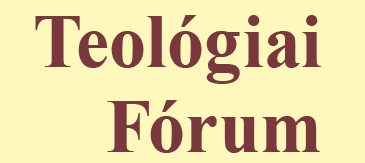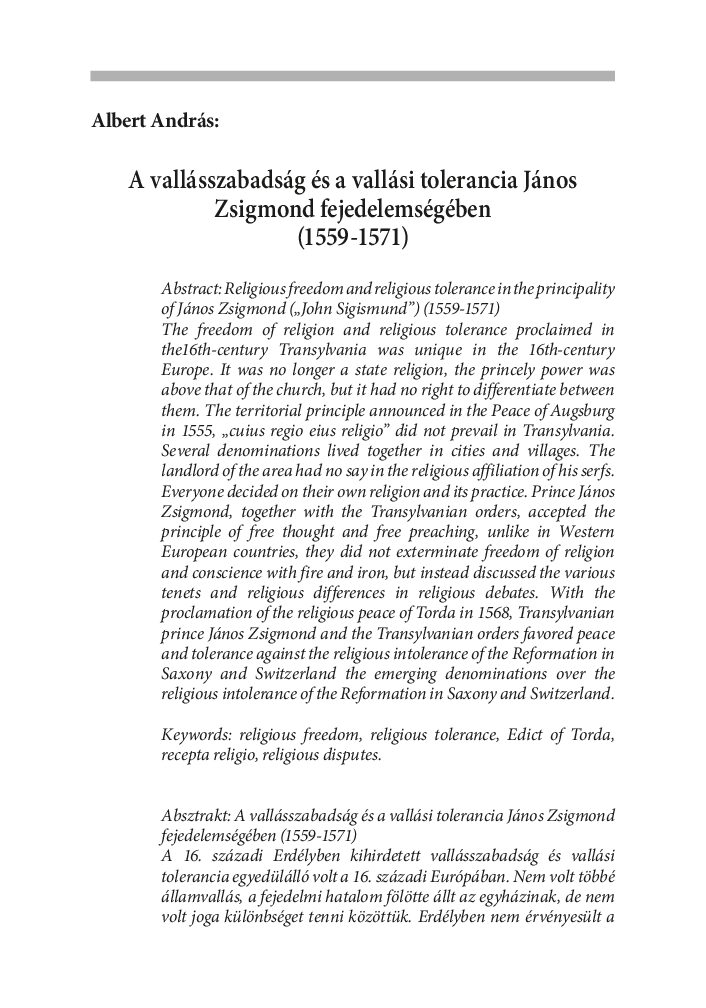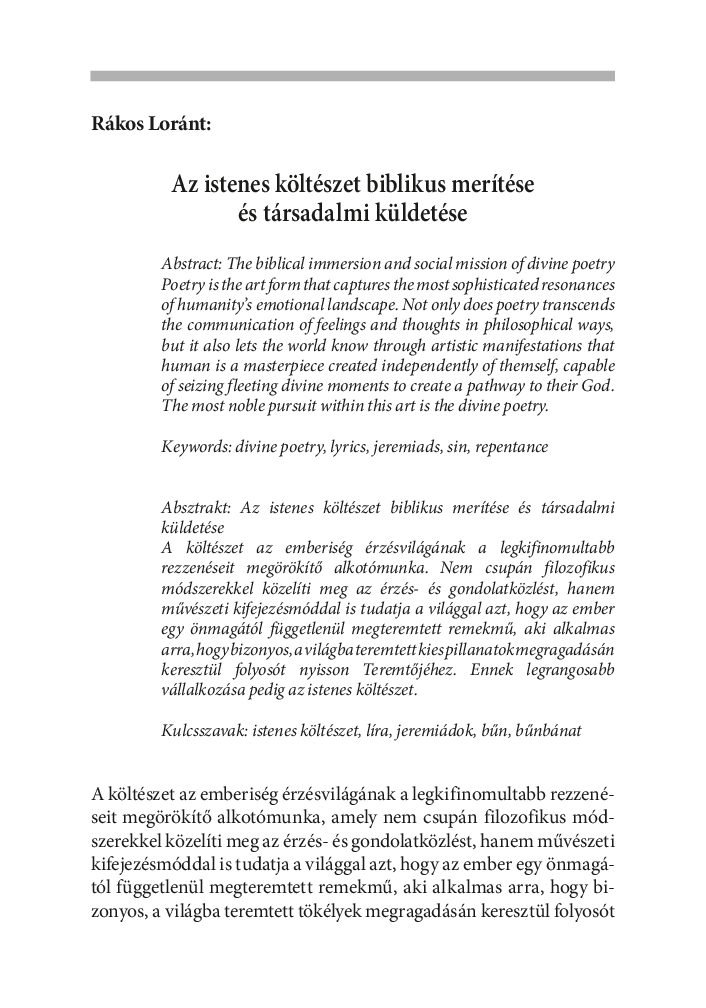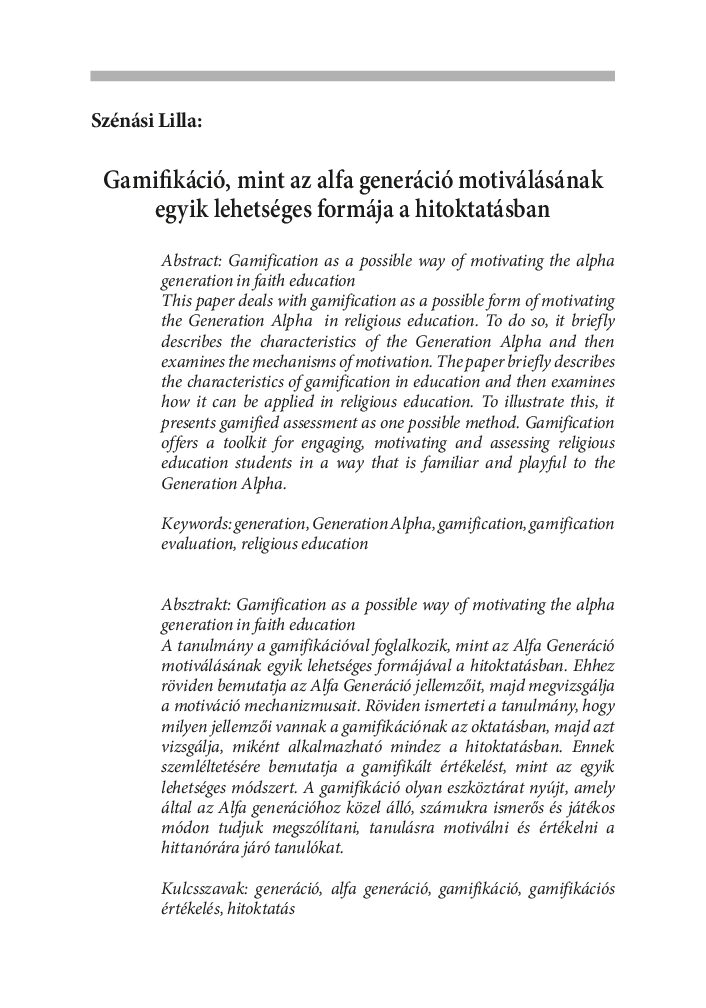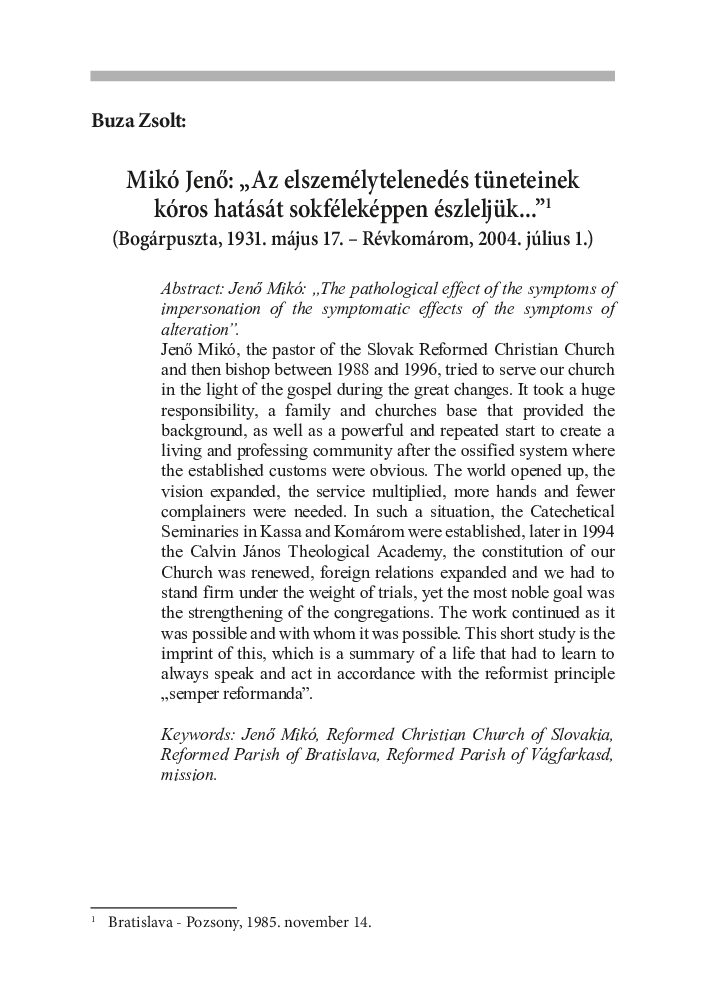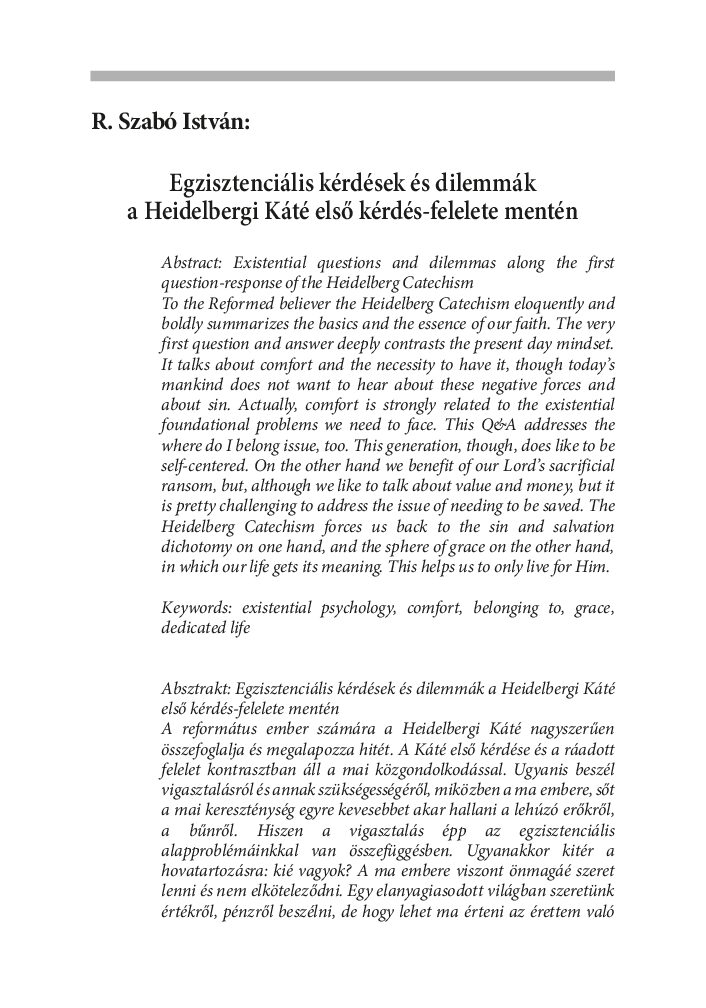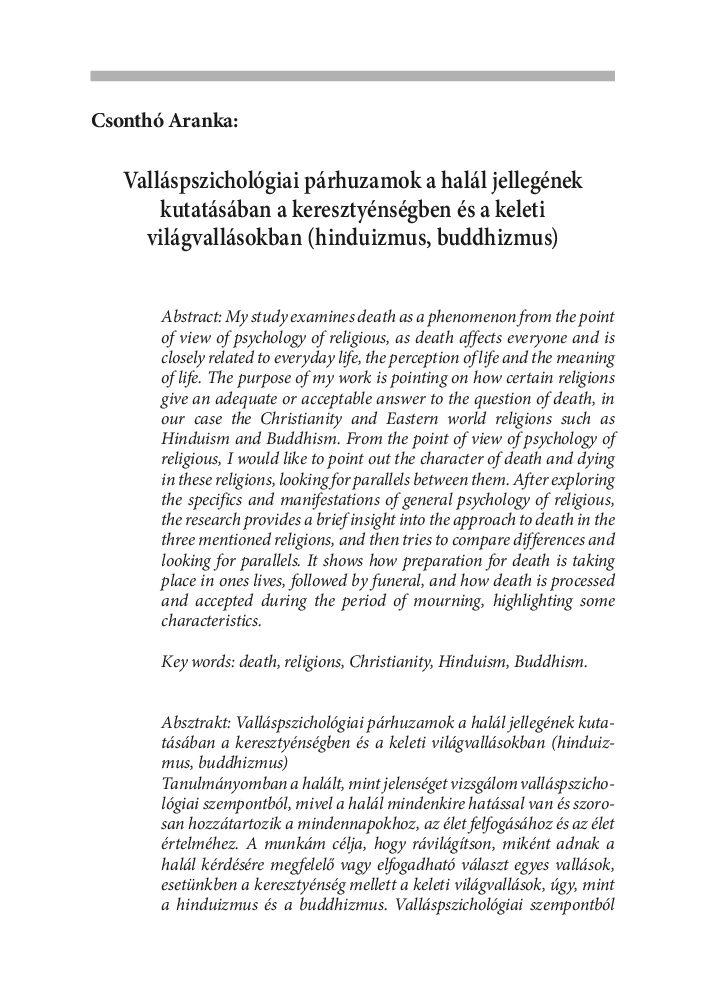„The sect, the new religious movement and the issues of interreligious dialogue from a Reformed perspective” aims to provide a brief summary of the background of the appearance of the Hare Krishna movement in Hungary, as well as its initial evaluation, especially by some Reformed thinkers. After the bloody period of the first half of the 20th century, the former leading role of Christianity in Europe was shaken, it reached a crisis in the field of satisfying the spiritual needs of the people, and was pushed back. Its place was taken by other religions, religious trends, and new religious movements, which typically do not reflect the
currents of thought of the „old continent”. One of these is the Hindu religion, which in Hungary can be known and understood mainly through the teachings of the Hare Krishna movement. The movement appeared in the 1970s, but it was only after the regime change that it was allowed to act and preach its doctrines. With its foreignness and different way of thinking, it soon earned itself the adjectives „sect” and „destructive sect” containing negative judgments, as its opponents saw that the movement had a harmful effect on young Hungarians, broke up families and was dangerous to society. The movement was able to act effectively against these negative indicators, so they were able to continue their missionary activities undisturbed from the mid-1990s. Today, they have become part of everyday life, with their street performances, events and festivals, and their bases that are also tourist attractions. The movement is open to other
religions as well, and shows dedication and social sensitivity to those living in socially disadvantaged situations. The widespread social debate surrounding the appearance of the Hare Krishna movement in Hungary, and its contradictory results, points out that it is worthwhile to approach and communicate with
the movement along the lines of interreligious dialogue, getting to know each other and accepting each other.
Keywords: postmodernism, sect and new religious movement, destructive sect, interreligious dialogue
